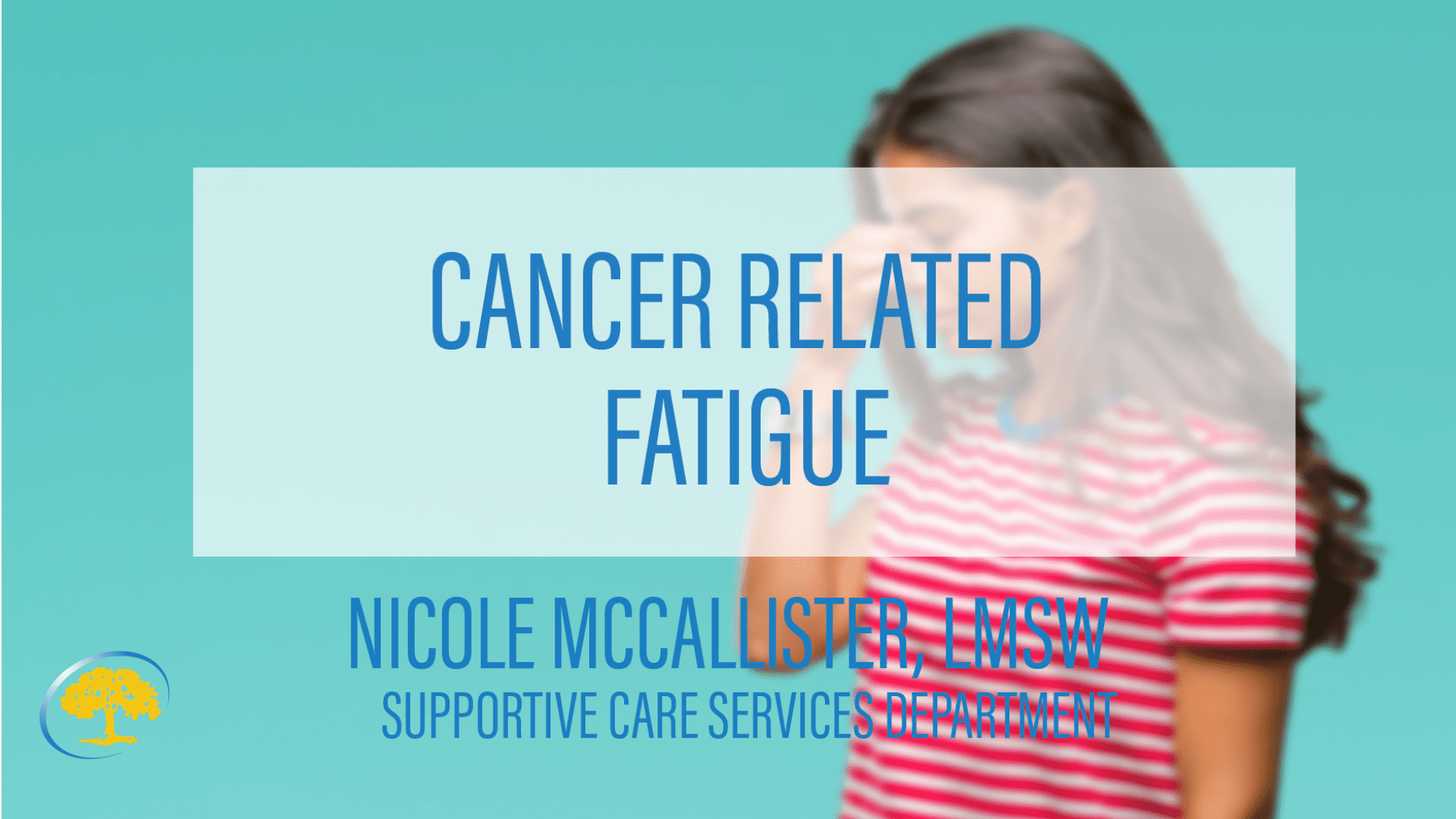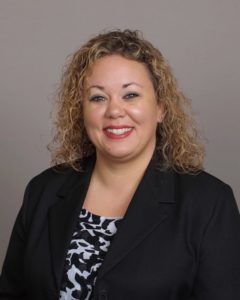
Posted 5 years ago
Cancer Related Fatigue

If you are experiencing cancer-related fatigue, the good news is that you are not alone. According to the American Cancer Society, between 80% and 100% of people with cancer report having fatigue. The fatigue felt by people with cancer is different from the fatigue of daily life.
Symptoms of cancer-related fatigue can include but are not limited to, increased need for rest and frequency of napping, limb heaviness or generalized weakness, lack of motivation for normal activities, experiencing non-restorative sleep, and diminished energy level not related to changes in your activity levels.
Cancer-related fatigue can be caused by a variety of issues such as nutritional imbalances, decreased protein levels, change in hormone balances, psychological stressors, medications, and changes in blood chemistry levels.

There are four evidence-based interventions to address cancer-related fatigue and Ironwood’s Supportive Care Services is here to help with all of them.
The first and most important treatment for fatigue is exercise. Mild but consistent exercise is important to reduce the loss of muscle mass, prevent weight loss due to cancer, increase your body’s production of anti-inflammatories and can reduce anxiety and depression. Walking, chair yoga and Tai Chi are all options for mild exercise to get you up and moving. Our Registered Dietitians are also available to you to discuss ways of increasing your protein levels, preventing the loss of muscle mass, and gaining weight in a healthy way if you have experienced cancer cachexia.
Research lists energy conservation and activity management as the second treatment intervention for cancer-related fatigue. Think of your energy as a cup full of spoons. Every time you expend energy, you lose a spoon. When you do something to support and increase your energy levels, you add a spoon to your cup. The goal is to never have a cup without spoons. Plan your activities for times when you have the most energy. Pace yourself and do not be afraid to delegate responsibilities. Spend time focusing on priorities. Priorities can change, even on the same day. Choose to do the things that improve your overall quality of life including physical and emotional connections.
Sleep hygiene is the third treatment for fatigue. This involves looking at behaviors before bedtime, lighting, sleep schedules, and the environment of your bedroom. Lighting and temperature are two of the many factors that are important in obtaining deep, restful, and restorative sleep. To learn how you can sleep better, go to Ironwood’s YouTube channel, and watch the educational talk by Dr. Heidi Rula, Ironwood’s Integrative MD.
The final treatment research indicates as beneficial for reducing cancer-related fatigue is education and counseling. The Social Workers at Ironwood are here to guide and support you on your wellness journey. Counseling can reduce intrusive and unhelpful thoughts, decrease symptoms of anxiety and depression, assist you in adjustment to your diagnosis, and help increase coping skills so that you are emotionally ready to take on physical challenges that may arise.
To contact any of our Supportive Care Services team members, including Dr. Heidi Rula, Social Work, Genetics Counselors, or our Registered Dietitians, contact our Supportive Care Services Coordinator at 480-314-6660.
About Nicole McCallister, LMSW

Nicole McCallister
Nicole McCallister is a Licensed Master Social Worker. Nicole received her Master’s in Social Work from Arizona State University in August 2017. She received her Bachelor’s in Criminal Justice Studies in April 2003 from Grand Valley State University in Grand Rapids, MI.
About Ironwood Cancer & Research Centers
Ironwood Cancer & Research Centers (ICRC) is the largest multi-specialty oncology network in the Greater Metro Phoenix area. They have over 100 medical providers, a robust Integrative Services program, and a dedicated clinical research department. Ironwood Cancer & Research Centers has 15 valley locations and five comprehensive cancer care centers that offer a multi-disciplinary approach for expedited personalized patient care. For more information, please visit www.ironwoodcrc.com.

